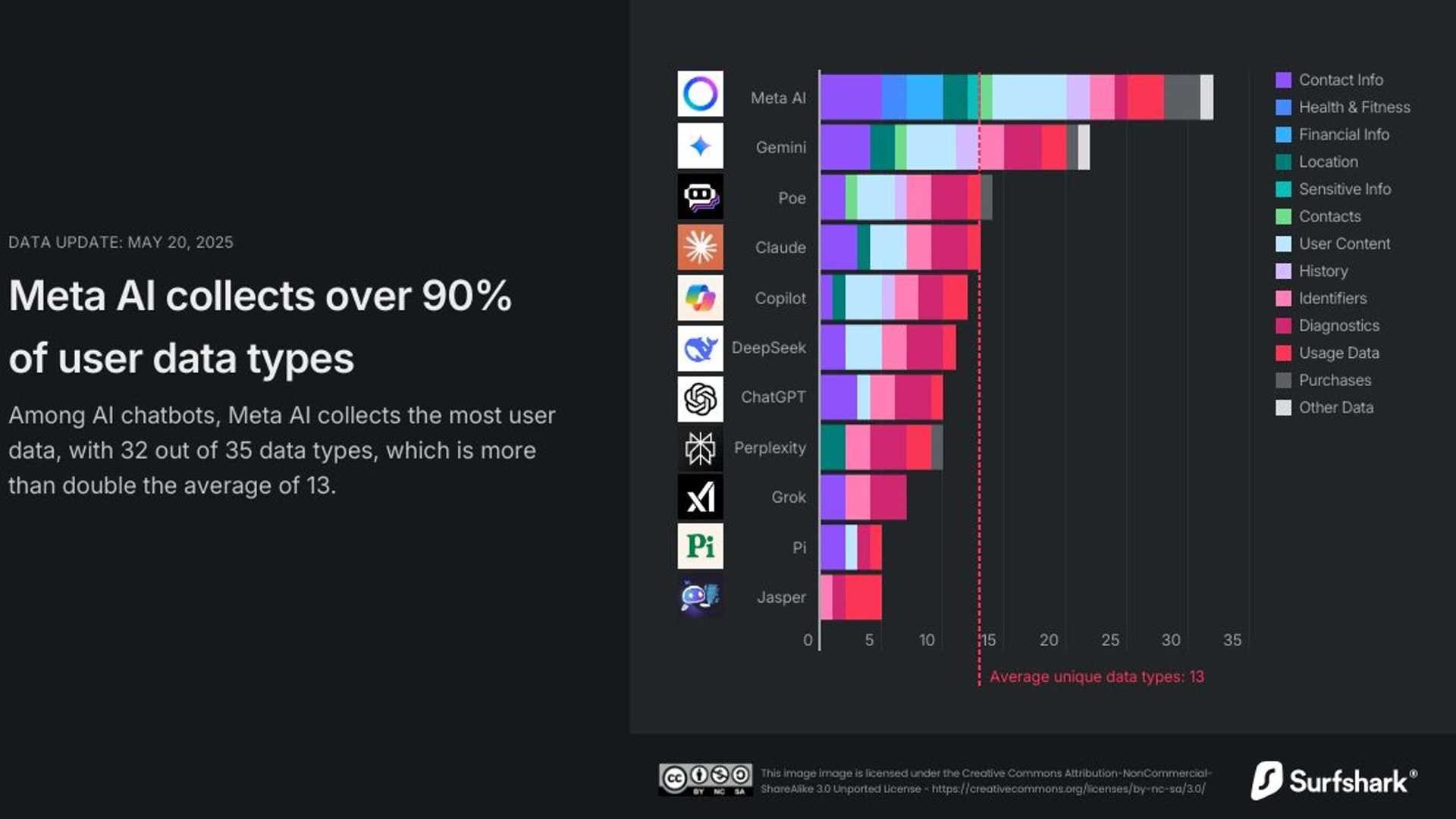Meta AI Just Beat Gemini as the Most Data-Hungry Chatbot...
Google Gemini has been a prominent player in the chatbot arena but it seems that its time at the top is coming to an end. Meta has recently unveiled its chatbot app, Meta AI, which is making waves as the new data king in town.
According to a study conducted by cybersecurity company Surfshark, Meta AI has set a new standard in data collection. Among all the chatbots analyzed, Meta AI stands out by collecting a whopping 32 out of 35 data types, which is more than double the average.
Unprecedented Data Collection
Meta AI's data collection prowess is unparalleled. It leads the pack by gathering 32 out of 35 possible data types, accounting for over 90% of the total data types available. What sets Meta AI apart is its ability to collect a wide range of data, including sensitive information like financial details, health and fitness data, and even personal information such as racial or ethnic background, sexual orientation, and more.
One key highlight is that Meta AI, along with Copilot, is among the few chatbot apps that collect data linked to user identity. This data may be used for displaying third-party ads within the app or sharing with external parties for advertising purposes. While Copilot focuses on two specific data types, Meta AI has the potential to utilize up to 24 different data types for these purposes.

Data Privacy Concerns
Surfshark's Leading System Engineer, Karolis Kaciulis, has raised concerns about the implications of Meta AI's extensive data collection practices. By aggregating data from multiple sources like Facebook, Instagram, and now Meta AI, users' privacy could be compromised. The indiscriminate gathering of user data for AI training purposes underscores the urgency for stricter regulations governing AI technologies.
The Impact of Generative AI
The study reveals that the average number of data types collected by AI chatbot apps is 13 out of 35. While 45% of these apps collect user locations, nearly 30% engage in data tracking activities. By learning from a diverse range of sources, including public posts and user-generated content, AI chatbots like Meta AI face challenges in delivering accurate and relevant responses due to potential inaccuracies in their training data.
User Data and Accountability
Despite providing quick answers, AI chatbots may deliver mediocre results due to the influx of unreliable information they process. Unlike humans, generative AI systems lack accountability and oversight, which raises concerns about data accuracy and privacy.

Google Gemini, although a formidable contender in the chatbot space, collects 22 unique data types, including precise location data. Comparatively, Meta AI, Copilot, and Perplexity are at the forefront, gathering a substantial amount of data across various categories.
Privacy and Rights
Kaciulis emphasizes the importance of safeguarding personal data, especially in regions like Europe where regulations like GDPR protect user rights. Users should be aware of the implications of sharing their data with AI systems, as it could lead to potential misuse, identity theft, or targeted manipulation.
Conclusion
In conclusion, Meta AI's ascension as the most data-hungry chatbot marks a significant shift in the AI landscape. As data collection practices become more pervasive, it is crucial for users to prioritize their privacy and understand the implications of sharing personal data with AI systems.
For more information, visit Surfshark's research.










